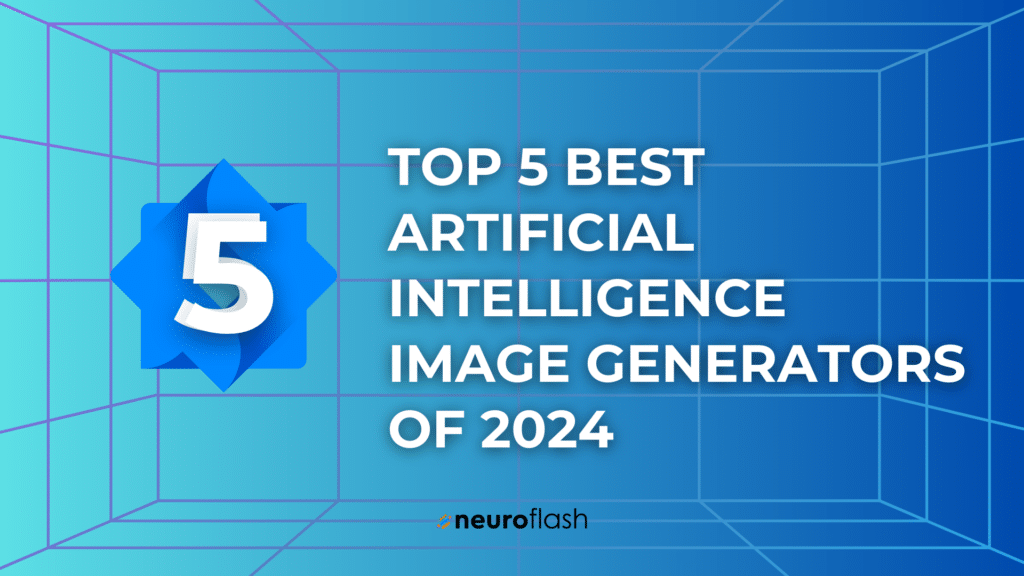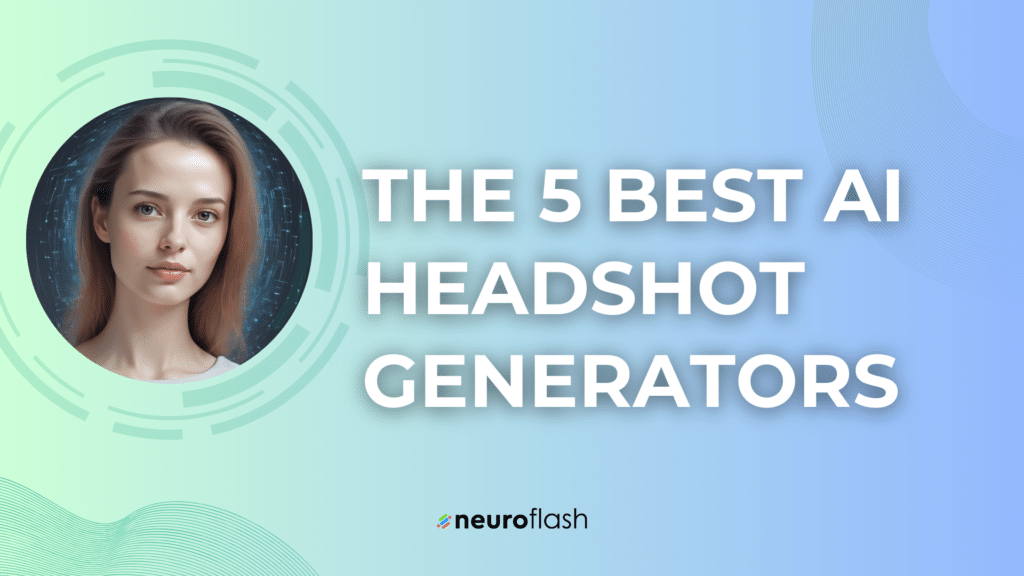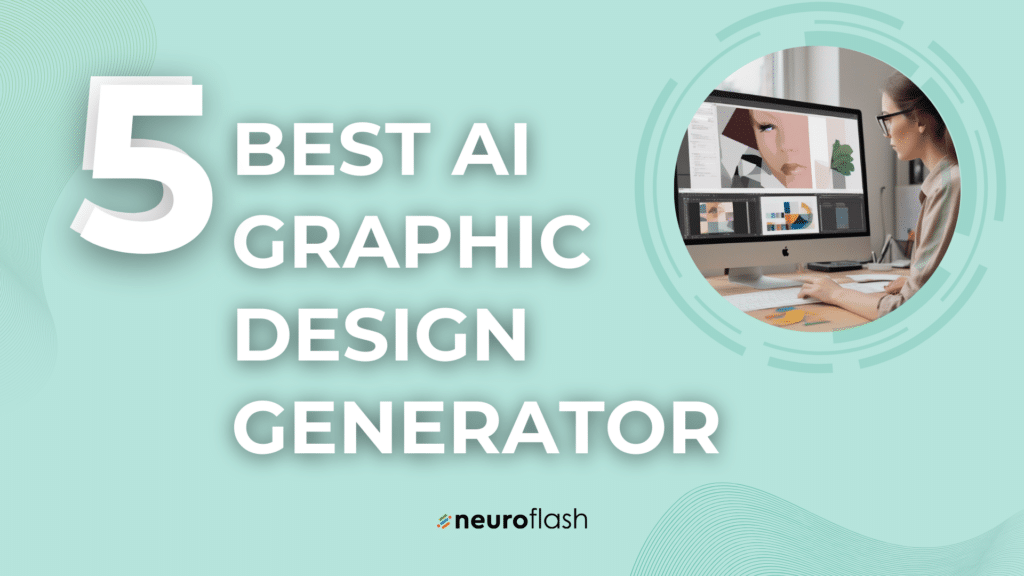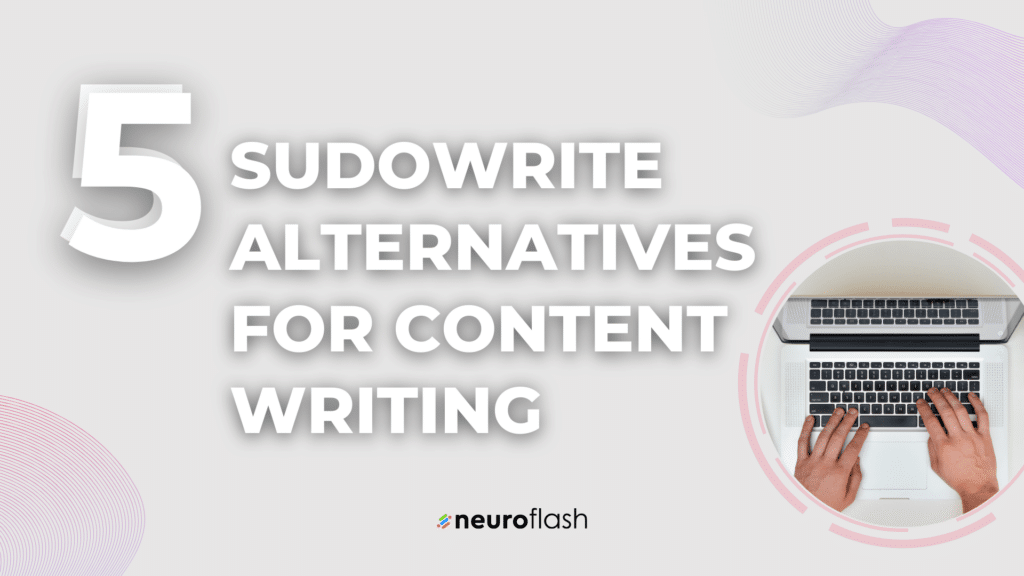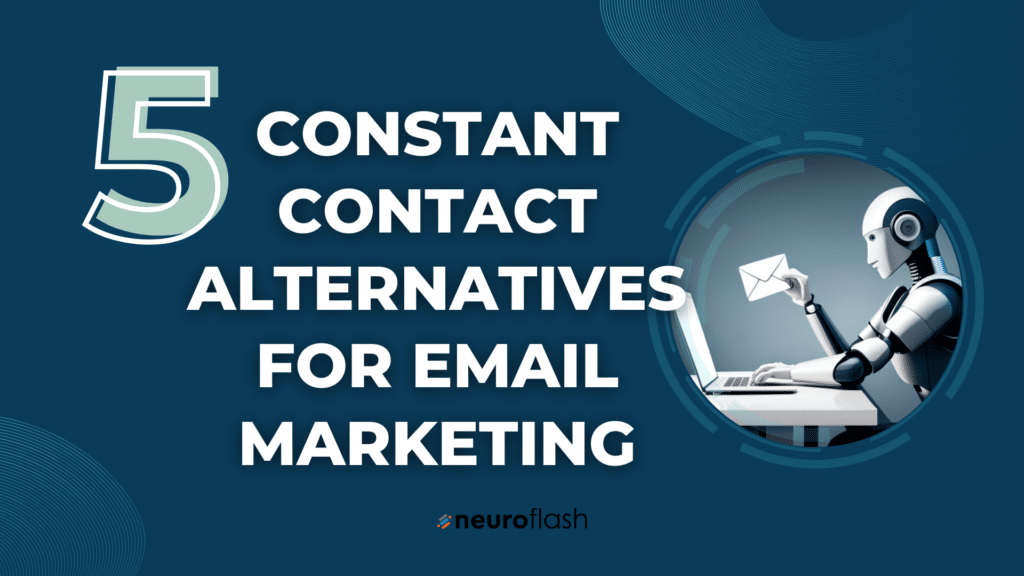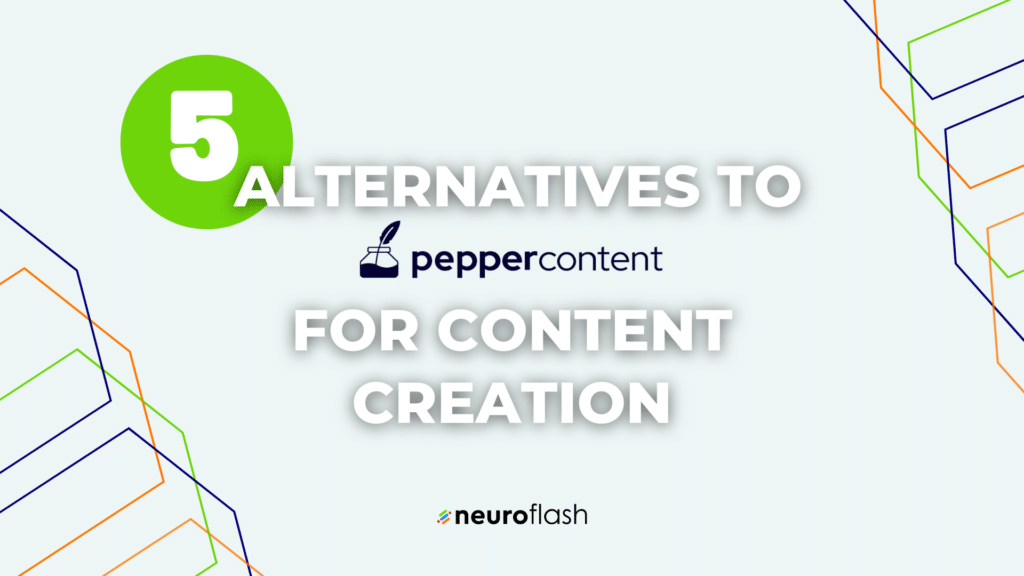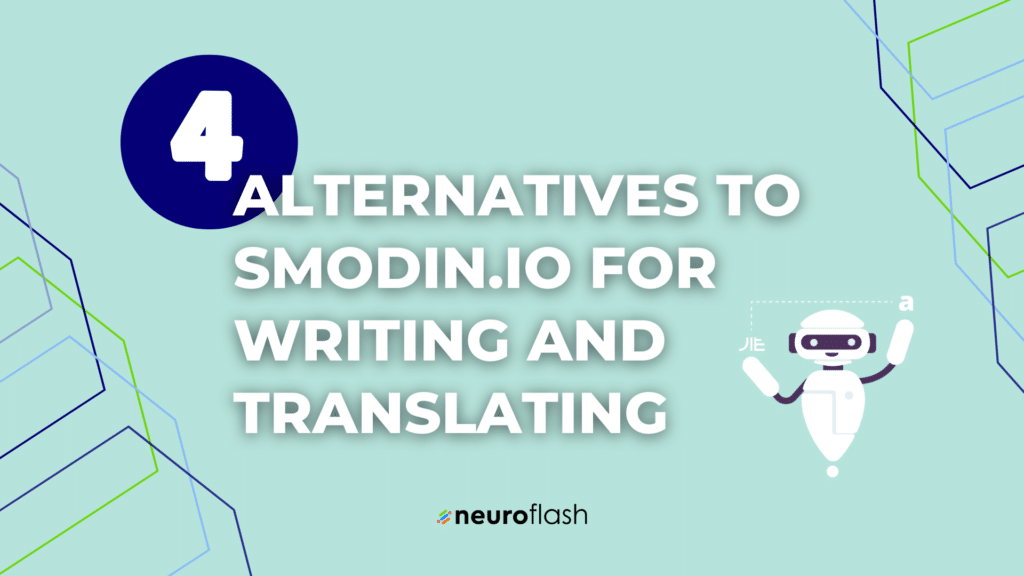Introducing AI into your marketing and content strategy doesn’t have to be an overwhelming task. In our newest blog post, we break down the process into five easy-to-understand steps of how to implement AI in your business. We start by explaining how AI can play a useful role in marketing and content creation, and then we show you how to pinpoint your business needs and set realistic AI goals to align with your strategy. Next, we’ll walk you through the wide range of AI tools available, helping you choose the ones that fit your goals. We’ll also guide you on how to smoothly integrate AI tech into your everyday operations. And finally, we talk about the importance of tracking your success and fine-tuning your AI choices as you go. Whether you’re new to AI or looking to enhance your current use, this article is your go-to resource for bringing the benefits of AI into your business.
Summary
❇️Artificial Intelligence in marketing and content creation involves using machine learning algorithms and natural language processing to automate, optimize, and personalize content delivery, aiming to create more engaging and timely interactions with audiences.
❇️Understanding how to implement AI in business requires , assessing current marketing challenges, and envisioning how AI can effectively address those challenges, with a focus on delivering content that resonates with the target audience.
❇️Identifying business needs and setting specific AI objectives are crucial steps in aligning AI capabilities with marketing goals, involving an analysis of current efforts, setting measurable targets, and understanding the audience’s preferences.
❇️Selecting the right AI tools requires researching tools that align with business needs, ensuring compatibility with existing technology, considering functionality and ease of use, evaluating cost-effectiveness, and considering vendor support and training.
❇️Integrating AI into marketing and content creation processes involves prioritizing areas for AI enhancement, training teams, managing data, starting with pilot projects for testing, and establishing a feedback loop for continuous improvement.

Understanding the Basics of How to implement AI in Business for Enhanced Customer Engagement
Artificial intelligence (AI) has revolutionized the way businesses interact with their customers. By leveraging AI, companies can create personalized experiences, streamline operations, and foster deeper engagement. Understanding the basics of how to implement AI in your business for enhanced customer engagement involves comprehending several key components and technologies. Below we explore practical examples of how AI can be integrated effectively within various aspects of your customer engagement strategy:
1. Chatbots and Virtual Assistants:
E-commerce websites are increasingly deploying AI-driven chatbots that can assist customers with product recommendations, inventory checks, and tracking orders. For instance, Sephora’s chatbot helps shoppers find products and provides makeup tutorials, creating a more engaging and interactive shopping experience.
2. Personalized Recommendations:
Streaming services like Netflix use AI to analyze user viewing habits and provide personalized movie and show recommendations. This keeps customers engaged, as they are more likely to find content that they enjoy and feel that the service caters to their specific tastes.
3. Customer Service Automation:
Telecom companies often deal with high volumes of customer service requests. AI can be implemented to triage support tickets, direct them to the appropriate department, or provide immediate automated responses for common issues, improving response times and customer satisfaction.
4. Predictive Analytics:
Retailers like Target use predictive analytics to anticipate customer needs, determining when they are likely to need certain products. This insight enables targeted marketing campaigns and tailored product placements, enhancing the relevance of the retailer’s outreach.
5. Sentiment Analysis:
Brands on social media utilize sentiment analysis tools to gauge public reaction to their products, campaigns, or services. By understanding customer sentiment, companies can proactively address concerns, capitalize on positive feedback, and tailor their communications to resonate better with their audience.
6. Visual Search Capabilities:
Home improvement stores, such as Home Depot, have implemented visual search in their apps, allowing customers to snap a picture of an item and find similar products available in their inventory. This AI feature makes searching more efficient and aligns with customer preferences for intuitive, tech-driven solutions.
7. Email Marketing Optimization:
AI can optimize email marketing campaigns by analyzing which subject lines, content, and send times yield the highest open and click-through rates. For example, using AI, a travel agency’s marketing emails may arrive precisely when customers are most likely to be planning their vacations based on past behaviors.
8. Voice Recognition and Assistants:
Financial institutions are introducing voice recognition in their apps and over the phone customer support. Banks like Capital One allow customers to use their voice to check balances or make payments via smart home devices, thus adding a layer of convenience and engagement.
In implementing AI into your business for customer engagement, start by identifying the touchpoints that matter most to your customers and where AI can add the most value. Invest in the right technologies and expertise to integrate AI smoothly with your existing processes. Moreover, it’s crucial to prioritize customer privacy and data security to maintain trust as you innovate. By taking these steps, AI can significantly enhance the interaction between your business and your customers, ensuring a more personalized, efficient, and engaging experience.
Identifying Your Business Needs and AI Objectives for Optimal AI Implementation
To effectively implement AI in your marketing and content strategies, a clear understanding of your business needs and specific AI objectives is crucial. This step is about aligning AI capabilities with your marketing goals to ensure that the technology serves your unique business requirements.
1: Analyse
Start by analyzing your current marketing efforts and identifying areas where AI can make a significant impact. Are you looking to improve customer engagement, increase content relevance, or streamline operations? Each goal may require a different AI approach. For instance, AI chatbots can enhance customer service, while machine learning algorithms can optimize content personalization.
2: Set your objectives
Next, set clear, measurable objectives for your AI initiatives. Whether it’s boosting conversion rates, reducing customer service response times, or increasing content engagement, having specific targets will help you measure success and guide your AI strategy.
It’s also important to consider the data you have available, as AI’s effectiveness relies on the quality and quantity of data to learn from. Ensuring your data is organized and accessible will facilitate smoother AI integration.
3: Audience’s behaviors
Understanding your audience’s preferences and behaviors is another key factor. AI tools can offer insights into customer trends and patterns, but a deep understanding of your target demographic will enable you to leverage AI more effectively to meet their needs.
By carefully identifying your business needs and setting precise AI objectives, you position your company to take full advantage of AI’s capabilities, tailoring its implementation to drive the most value for your marketing and content creation efforts.
In summary, determining the right AI strategy requires a blend of understanding your unique business requirements, setting clear AI development goals, and ensuring you have the best data management practices in place. Such preparation will not only help in the seamless implementation of new technology but also ensure that your efforts in artificial intelligence learning are directly aligned with customer needs and business objectives. This strategic approach will make your work in AI not just a technological addition but a significant business asset.
Selecting the Right AI Tools for Effective Marketing and Content Strategies to Implement AI in business
From chatbots that offer real-time customer service around the clock to predictive analytics that tailor marketing campaigns to consumer behavior, the potential of AI to elevate a brand is monumental. As businesses adopt AI-driven tools, they find themselves able to anticipate market trends, automate social media content, and analyze big data with unprecedented speed and accuracy.
Several companies have made headlines for successfully integrating AI into their marketing and content strategies, reaping significant benefits in customer engagement, operational efficiency, and business growth.
- Netflix: Perhaps one of the most cited examples of AI in action, Netflix uses sophisticated algorithms to personalize recommendations for its 200+ million subscribers. By analyzing viewing habits, search history, and even the time spent browsing, Netflix’s AI curates a unique content selection for every user. This high level of personalization has contributed to the streaming giant’s impressive customer retention rates and consistent growth in subscriber numbers.
- Amazon: Amazon’s use of AI extends beyond its recommendation engine, which, similar to Netflix, suggests products based on browsing and purchasing history. Amazon also employs AI in its marketing strategies, using machine learning to optimize ad placements and messaging. These AI-driven tactics have helped Amazon to stay at the forefront of e-commerce by ensuring marketing content is highly relevant and engaging for each consumer.
- Spotify: This music streaming platform leverages AI to analyze the music you listen to, then suggests new tracks and artists you might enjoy, creating personalized playlists like “Discover Weekly.” These intuitive recommendations have not only endeared users to Spotify but also increased the time they spend on the platform, thereby driving ad revenue and subscription growth.
- Starbucks: By integrating AI into their mobile app, Starbucks offers a personalized experience for customers, including tailored menu options and order suggestions based on past behavior. The AI-driven ‘My Starbucks Barista’ feature even lets customers place orders with voice commands. This approach to using AI has been instrumental in increasing customer engagement and driving sales.
- Salesforce: Salesforce implements AI via its Einstein platform to give businesses insights into their sales funnels and customer relationships. Companies that use Salesforce with Einstein can predict customer behavior, personalize experiences, and create more effective marketing campaigns, leading to increased sales and customer satisfaction.
Each of these companies demonstrates that knowing how to implement AI in business isn’t just a tactical move—it’s strategic imperatives for growth-minded leaders in the modern economy. The integration of AI into marketing and content strategies is proving to be a decisive factor in building dynamic, responsive, and customer-centric businesses that not only weather the storms of change but thrive in them.
Integrating Artificial Intelligence Technology into Your Business Marketing and Content Creation Processes
Begin the implementation process by prioritizing areas of your marketing strategy that will benefit most from artificial intelligence enhancements. Whether it’s through smarter content distribution, enhanced customer interaction, or more precise targeting, focus on applications that directly contribute to your artificial intelligence objectives.
🤝 Work in teams
Training your team is crucial for a smooth transition. Ensure that your marketing and content creation teams understand how to operate the new artificial intelligence tools and the benefits they bring. This may involve workshops, tutorials, or collaboration with the artificial intelligence tool providers for in-depth training sessions. Empowering your team with the knowledge and skills to harness artificial intelligence technology will foster innovation and creativity in your strategies. With neuroflash for Marketing Teams and Business, work as a team and pool all your resources to develop an effective marketing strategy that is true to your small business identity.
📈 Data Management’s role
Data management plays a foundational role in effective artificial intelligence integration. Organize and prepare your data to feed into the artificial intelligence systems, ensuring high-quality, relevant data inputs for accurate analysis and output. This might involve cleaning your data, integrating multiple data sources, or setting up protocols for continuous data collection and analysis.
Start small with pilot projects or specific campaigns to test the effectiveness of artificial intelligence integration in your processes. This approach allows you to monitor results, make adjustments, and evaluate the impact before scaling up to more comprehensive artificial intelligence applications.
🔁 The importance of Feedback
Finally, ensure that there is a feedback loop in place for continuous improvement. Monitor the performance of artificial intelligence-integrated processes closely, gathering insights on what works and what doesn’t. Use this feedback to refine your approach, optimizing the artificial intelligence applications for better results over time.
Integrating artificial intelligence technology into your marketing and content creation is not a one-time effort but a continuous process of learning, adapting, and evolving. By taking a structured approach, focusing on training, data management, and continuous improvement, you can unlock the full potential of artificial intelligence to revolutionize your marketing strategies and content creation processes, meeting your customer’s needs more effectively and driving your business forward.
Generating Content with ContentFlash to Implement AI in your Business:
1 Step
To get started with our app, log in and head to ContentFlash. This is where you’ll find your Content Generator. Simply choose between the variety of workflows, or start one by scratch. The AI will guide you through a series of questions to tailor the post to your unique needs, goals, and most importantly, your brand voice and target audience. Select the kidn of text you want to generate.

2 Step
ContentFlash has the capability to generate content on any topic without limitations. To ensure that your post is SEO-friendly, we suggest using your target keyword right from the start when entering the topic. Simply type it into the “What do you want to write about?” box. The AI of ContentFlash will then produce content incorporating this specific keyword and all other requested details. You have the option to manually edit the results as well, ensuring that the keyword appears in both headlines and text as desired.
3 Step
As a result, ContentFlash will provide you with a fully optimized post for your audience in just minutes. This post will resonate perfectly with your target audience and be written in your unique brand voice. Now, from the Editor screen, your only task now is to make any desired edits, whether that involves adding, modifying, or rewriting a line, sprinkling in emojis, inserting product links, etc. With the ease and efficiency of ContentFlash, crafting engaging content for your audience has never been simpler.
Optimizing SEO Strategies and Marketing Campaigns Using AI-Powered Insights
AI-driven SEO tools can perform detailed keyword research, identifying not just high-volume keywords but also long-tail phrases and synonyms that your target customers are using. This ensures that your content is not only relevant but also comprehensive, covering a wider range of search queries. Moreover, these tools can analyze your competitors’ SEO strategies, providing you with valuable intelligence to refine and enhance your own approach.
Beyond keyword optimization, AI can assess website performance, identifying areas that may hinder your search engine rankings, such as slow loading times, poor mobile optimization, or broken links. By pinpointing these issues, AI enables businesses to make informed decisions and implement technical SEO improvements that significantly boost website performance and user experience.

Measuring Success and Optimizing AI Implementations for Continuous Improvement in Business
Once artificial intelligence technology is integrated into your marketing and content creation processes, the focus shifts to measuring success and continually optimizing these implementations. This final step ensures that your AI tools not only deliver on their initial promise but also evolve with your business needs and the digital landscape.
4 keys to Measure and Optimize Success
- Establishing Key Performance Indicators (KPIs) is crucial for measuring the success of your AI initiatives. These should align with your original AI objectives, whether it’s increased engagement rates, higher conversion rates, or improved customer satisfaction. By tracking these KPIs, you can gauge the effectiveness of your AI tools in real-time, making data-driven decisions to enhance your marketing strategies.
- Analyzing AI-driven Insights for Better Customer Understanding plays a pivotal role in optimizing your marketing efforts. AI tools provide a wealth of data about your customers’ behaviors, preferences, and interactions. Dive deep into this data to uncover trends, patterns, and areas for improvement. These insights enable you to fine-tune your content, personalize your marketing messages, and predict future customer needs with greater accuracy.
- Iterative Testing and Learning for AI Development are essential for continuous improvement. The digital marketing landscape is constantly evolving, and so should your AI implementations. Experiment with different AI-driven strategies, test new tools, and iterate based on the outcomes. This proactive approach allows you to stay ahead of the curve, adapting your marketing tactics to meet changing customer expectations and technological advancements.
- Soliciting Feedback to Meet Customer Needs from your users and team members can provide valuable perspectives on the effectiveness of your AI applications. User feedback can reveal how well AI-driven interactions meet their needs and expectations, while your team can offer insights into the operational aspects and potential areas for enhancement.

Implementing AI in your Business to Analyse and Optimize your Content Creation: PerformanceFlash
PerformanceFlash, your go-to solution for crafting content that resonates on a deeper, emotional level with your consumers. With its innovative real-time feedback system, PerformanceFlash revolutionizes the way you approach content creation by analyzing and predicting the emotional and associative impact your words have on your audience. Say goodbye to guesswork and hello to science-backed insights that ensure your message hits the right note every time.

PerformanceFlash creates suitable short text suggestions to easlity improve your content performance.
Elevate the quality of your content to new heights with our expertly honed suggestions that are guaranteed to captivate and engage your audience effortlessly each time. With PerformanceFlash by your side, rest assured that your message will not only be heard but truly felt by those who encounter it.

AI also plays a critical role in content optimization, suggesting content structures and formats that are more likely to engage users and be favored by search engines. This not only helps in creating content that resonates with your audience but also ensures it ranks well, driving more organic traffic to your site.
Incorporating AI insights into your SEO and email marketing strategy offers a competitive edge, enabling businesses to navigate the complexities of search engine algorithms with precision and efficiency. This approach not only improves your website’s search engine rankings but also enhances the overall quality of your digital presence, making your brand more visible and accessible to your target customers.
Implement AI in business ealisy with neuroflash!
Presenting neuroflash – your ultimate AI content partner, carefully crafted to transform your content creation process. Our state-of-the-art platform enables you to speed up your work, streamline tasks and boost efficiency effortlessly. Harness the potential of neuroflash and revolutionise the art of content creation forever.

With neuroflash you can collaboratively create, edit and optimize your content for more ROI. Lead your team and your brand to success and discover the benefits of neuroflash! Unlock the power of cutting-edge AI technology with neuroflash. By harnessing the innovative features of our platform, you can revolutionize the way you engage with your audience and drive higher conversion rates. Join leading companies who have already experienced the transformative impact of neuroflash, and elevate your content strategy to new heights.

Ready to begin crafting tailored content that is optimised for success? Simply request an offer price here! Provide us with some key information, and we will promptly send you a personalised offer for payment on account.
However, if you are still unsure, ask us for advice. Our team of experts will be happy to offer opinions and patiently study your situation. Find the plan that best suits your company’s needs and start growing your small business with AI today! We look forward to exchanging ideas with you and your team.

neuroflash can be customized and optimized according to a company’s specific requirements, making it a valuable and tailored resource that helps to increase the company’s efficiency and achieve its goals.
With neuroflash’s advanced features, including GPT-3.5 and GPT-4 for content creation, you can take your content marketing to the next level. Our pre-built workflows, our powerful AI text editor and our AI chatbot that can be customized to your brand voice help you save time and work more efficiently. With our team feature, you can work together and reach new creative heights. Our AI technology can even predict customer associations and feelings about your texts so that you always strike the right note.
The Volkswagen Case Study:
Dive into this case study of how PerformanceFlash guided Volkswagen to Triumph with Precision Brand Positioning: The Volkswagen brand wanted to improve its brand position and brand image in the first place because of the whole Dieselgate scandal. It is out of question, that the scandal damaged its reputation.
Therefore, improving its brand position was the main goal of the whole project. How? By re-establishing what they stand for and by revitalizing their brand values. Volkswagen was looking for a new method to approach the challenge mentioned above. Traditional methods, such as focus groups and online panels were considered too slow to quickly iterate ideas and implement a new strategy. Further, these methods were quite time-consuming and expensive. Discover the smart choices and critical decisions that propelled them to the forefront of the automotive industry using PerformanceFlash. Read the complete story about how Volkswagen improved their brand positioning with us.
Frequently Asked Questions
How can AI be implemented in business?
AI can be implemented in business through a variety of applications such as automating routine tasks, enhancing customer service with chatbots, improving decision-making processes with predictive analytics, optimizing logistics and supply chain operations, and personalizing marketing efforts to better target potential customers. Identifying specific business needs and selecting the right AI technologies to address those needs is the first step towards successful implementation.
How do you implement an AI system?
Implementing an AI system involves several key steps: defining the problem you want AI to solve, gathering and preparing the necessary data, choosing the appropriate AI model or algorithm, training the model with your data, testing and refining the model to improve its accuracy, and finally, integrating it into your existing systems and processes. It’s crucial to also consider ethical implications and ensure that the AI system is transparent, fair, and respects user privacy.
How AI can be implemented?
AI can be implemented in various ways depending on the business needs, including through intelligent automation of routine tasks, predictive analytics for better decision-making, AI-powered customer service bots, and personalized marketing strategies. The implementation process involves identifying the problem, selecting the right AI technology, collecting and preparing data, training the AI model, and integrating it into business operations while considering ethical guidelines.
How do you introduce an AI to a company?
Introducing AI to a company involves initially conducting a thorough assessment of the company’s needs and areas where AI can add value. Start with educating the leadership and employees about the benefits and challenges of AI, followed by selecting a pilot project that has a high potential for success with minimal risk. It’s essential to involve all stakeholders in the planning process, secure the necessary resources, and ensure there is a clear strategy for data governance, privacy, and security. Monitoring the project closely and adapting based on feedback and results will help in scaling AI solutions across the company.
Conclusion
Implementing AI in marketing enhances efficiency, speed, and audience relevance. Successful AI integration requires clear goals, selecting proper tools, and seamless incorporation into existing workflows. Continuous learning and strategy refinement are crucial, with data-driven adaptation and measurement for achieving business objectives. Embracing AI can significantly advance marketing and content creation, providing a competitive advantage in the digital marketplace.












